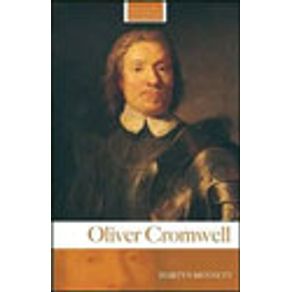In this concise, accessible new biography, Martyn Bennett examines the life of Oliver Cromwell - one of the most controversial figures in world history. Elected to Parliament in 1640 Cromwell played a major role in challenging the excessive powers of Charles I. As Lieutenant General, his military campaigns were crucial to victory during the Civil War and he was instrumental in the trial and execution of the King. As Lord Protector of the Commonwealth he remains the only non-royal head of state in British history. His rule was characterized by unprecedented religious freedoms and is seen as laying the foundations for the modern British constitution. However, Cromwell's legacy in Ireland as a war criminal, and in Scotland as a military dictator has greatly problematic his reputation. Further, in a nation obsessed with heritage, that places emphasis on a seemingly smooth monarchical progression, Cromwell's government is seen as an anomaly and the concept of 'republic' difficult to assimilate into British historical traditions. Bennett challenges these long-held perceptions of Cromwell, arguing that he needs to be placed at the core of early Modern British and Irish history. Charting his early career, the origins of his political and religious thought and the development of his notions of governance that influenced him as Lord Protector, Bennett contests the post-Restoration vilification of Cromwell to examine how his influence has shaped notions of citizenship, identity and governance and informed the role of religion in the state throughout the history of the British Isles.


